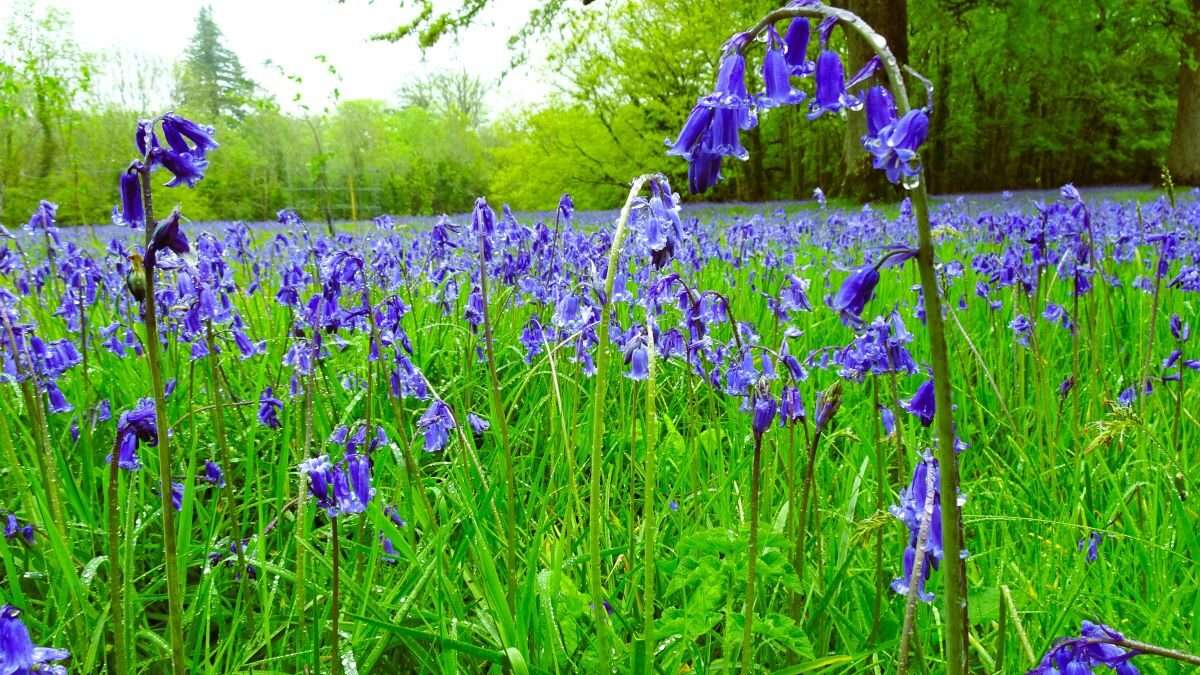There is an aura about them, their wands of indigo appear to float close to the land like a purple-blue gossamer mist. Whether in a clump or spread across a meadow, the magic of bluebells is powerful, their fragrance rich, sweet and evocative.
My love for them has enrichened since I first saw them after moving to Kent from London aged ten. That woodland walk was full of wonder, it remains a vivid memory and was the start of my wildflower passion.
Previously, I had sung about the flowers in the playground with friends. The ‘In and Out of the Dusky Bluebells’ song accompanies a circle game. I don’t think I knew what they looked like then, but it was immense fun as everyone danced around and hoped to be chosen as the leader with a “tip-tap” on our shoulders.
The bulbous perennial plant’s Latin name is Hyacinthoides non-scripta, but it’s also known by others, such as harebell and wild hyacinth, but my favourites are cuckoo’s boots and witches’ thimbles.
In March, I wrote a blog post about daffodils and included a Greek myth associated with them. I’m fond of these stories, so was delighted to learn about one connected with bluebells.
Apollo and the god of the west wind, Zephyr, adored Prince Hyacinth. But when Apollo was favoured, Zephyr became consumed with jealousy. He waited until the lovers were playing discus, then blew Apollo’s throw off course, resulting in Hyacinth receiving a fatal head wound. Droplets of his blood seeped into the soil. Bell-shaped blooms grew in their place, and Apollo named them in Hyacinth’s honour.
Other tales flourish about fairies and bluebell spells, and if any are heard ringing, it will bring bad luck. Wooded glades, pixies and fairies certainly belong together, but I was also enthralled with other trivia connected with this charming plant.
I found out that, throughout history, the roots and bulbs made a very good glue, especially in bookbinding. Whereas Elizabethans used the gooey liquid in starch for stiffening ruffs. Very practical!
One important fact to remember though, is that all parts of the plant are poisonous if ingested, so celebrate and admire, only.
Amazingly, fifty per cent of the world’s bluebell population grows up and down our green and pleasant isle making the tiny exquisite flowering stems part of our British heritage.
Until next time,
Sue. X

